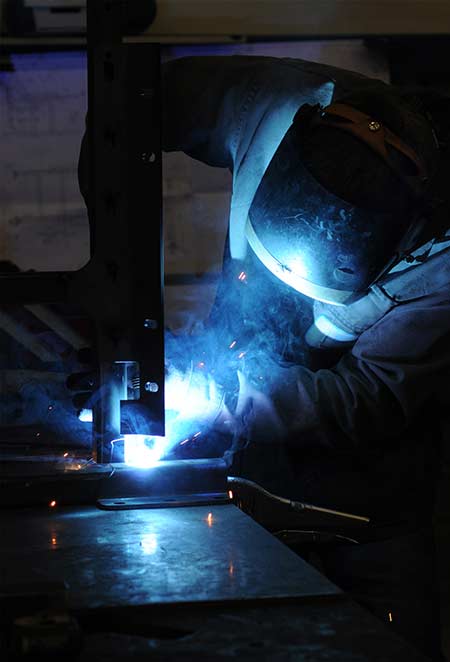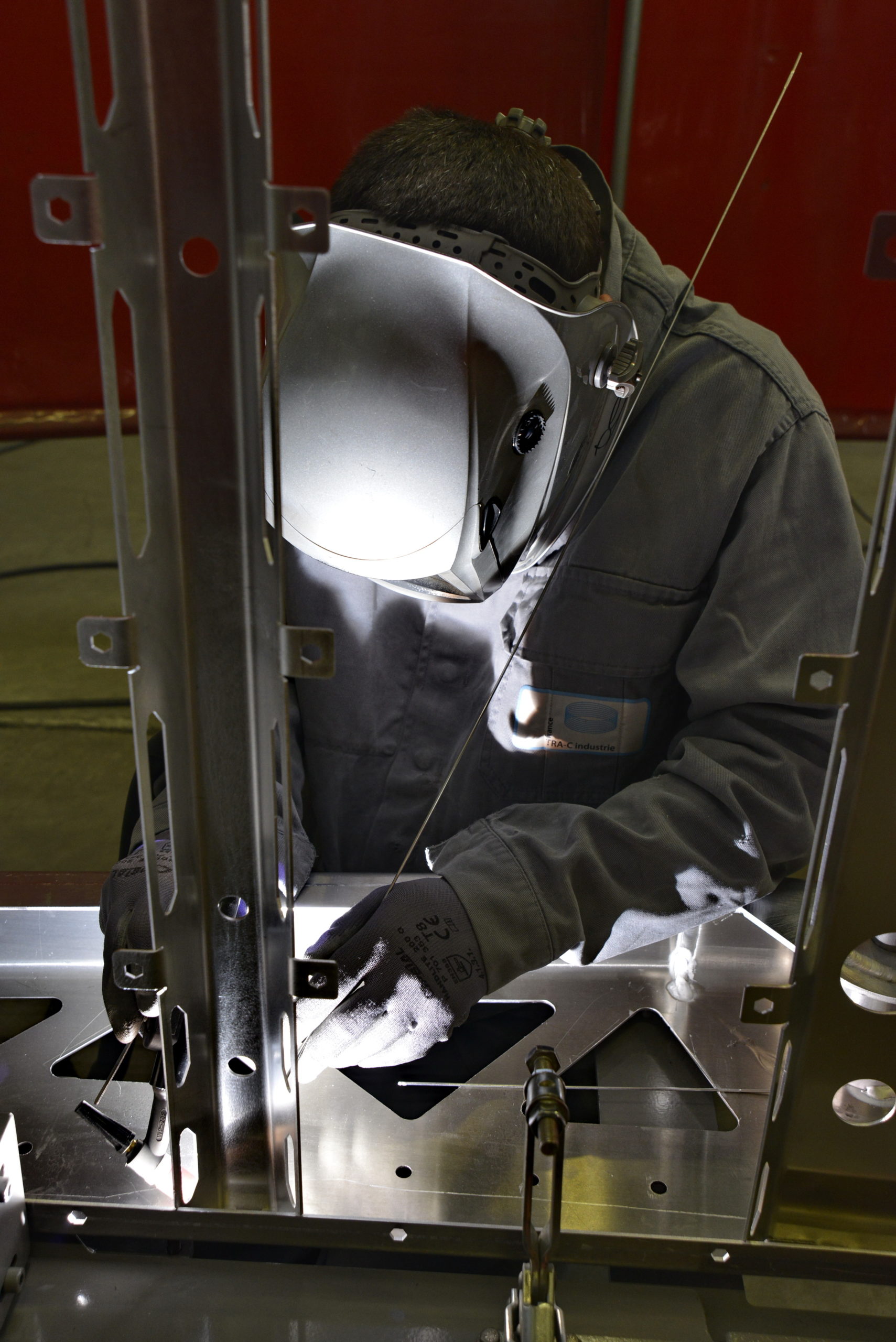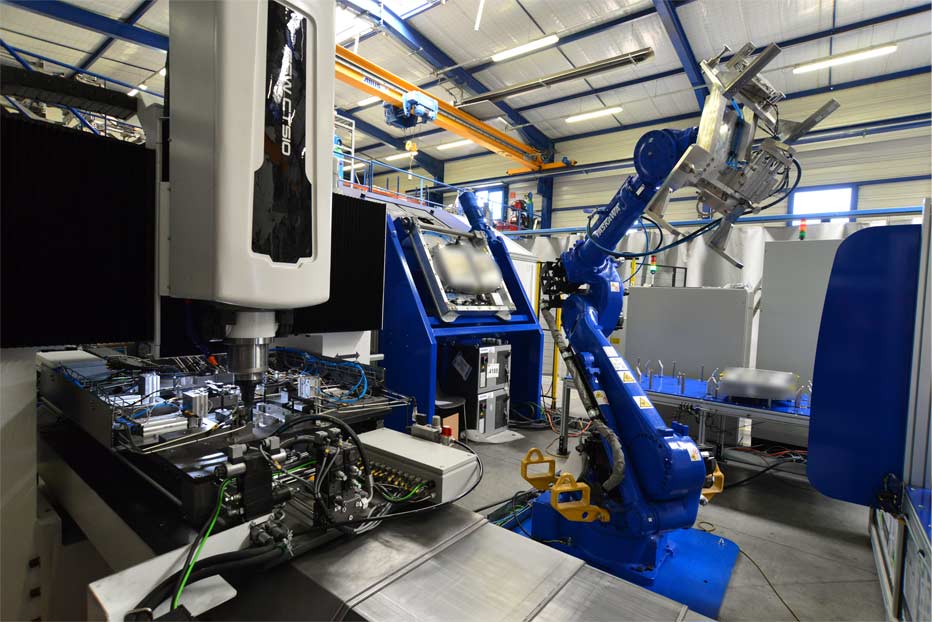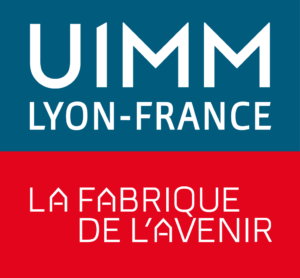ISO 9001 standard applied to the welding sector
The ISO 9001 standard is a set of international principles and guidelines developed by the International Organization for Standardization (ISO). It aims to establish, implement, maintain and improve a quality management system within an organisation.
Applied to the welding sector, this certification is used to provide products and services tailored to customer requirements. It is particularly useful in cutting-edge sectors such as aerospace, railway, automotive or shipbuilding…
Given the high requirements in the welding industry, this standard provides a guideline for manufacturers, subcontractors and suppliers. It is also a real mark of confidence and commitment for certified companies.
But what is exactly ISO 9001 standard? What are its benefits for the welding sector? And how can welding companies integrate it into their processes? In this article, TRA-C industrie tells you more about this international standard…

What is ISO 9001 certification?
ISO 9001 standard is an international standard that defines the requirements for quality management. Its aim is to help organisations guarantee customer satisfaction and continually improve their performance.
It establishes a framework for setting up a quality management system (QMS) based on 7 founding principles:
- Customer focus
- Management involvement
- Staff commitment
- The process approach to resources and activities
- Improvement
- Evidence-based decision-making
- Managing stakeholder relations
ISO 9001 certification is often sought by companies, institutions and organisations. It demonstrates their commitment to quality and their ability to offer products or services that meet customer expectations.
Part of the ISO 9000 family of standards, this certification is now the most widely used quality management standard in the world. To date, over a million certificates have been issued to organisations in 189 countries!
Application of ISO 9001 standard to the welding sector
The implementation of ISO 9001 standard in the welding sector is essential to guarantee the quality of welding operations. It applies at several levels:
- Welding process management: this covers the selection of materials, the qualification of welders and the implementation of welding techniques. We also carry out the necessary quality controls at each stage of the process;
- Documentation and traceability: welding companies must also document their work procedures. They must also document their technical specifications, as well as the results of inspections and tests carried out;
- Qualification of personnel: ISO 9001 standard requires personnel involved in welding processes to be qualified and trained. It is aimed at welders, inspectors and anyone involved in the management or quality control of welds;
- Non-conformity management: companies must also put in place procedures to identify, record and deal with problems relating to welding operations. This may involve corrective or preventive action;
- Continuous improvement: this involves collecting and analysing assembly performance, for example. Companies can also evaluate feedback from their customers and implement targeted improvement actions.


Benefits of ISO 9001 certification for the welding industry
ISO 9001 certification offers a number of significant advantages for companies operating in the welding sector. These include:
- Quality improvement: implementing the principles of the ISO 9001 standard makes it possible to establish rigorous processes to guarantee the quality of welding operations. The result is a reduction in defects, non-conformities and rejects;
- Customer confidence: with ISO 9001 standard, organisations are seeking to better understand their customers’ needs and expectations. This is essential in cutting-edge industries such as aerospace, railway and defence;
- Access to new markets: many national and international customers require their suppliers to be ISO 9001 certified. For welding companies, certification opens up new opportunities;
- Reduced costs: by improving the quality of welding processes, ISO 9001 certification helps to reduce the costs associated with rework. It also limits repairs and production losses caused by defects or non-conformities;
- Process optimisation: implementing ISO 9001 standard also encourages continuous improvement. Welding companies are thus able to reduce their production times and optimise the use of their resources;
- Staff empowerment: with this certification, all staff is involved in improving the organisation’s performance. It therefore fosters a sense of commitment, which has a positive impact on corporate
How to integrate effectively ISO 9001 standard into your processes?
Integrating ISO 9001 into the processes of a welding company requires a step-by-step action plan:
- Commitment of managers: managers must demonstrate their support and leadership for quality management. They must provide the necessary resources and set clear objectives for implementing a quality management system;
- Assessment of existing processes: before starting to implement ISO 9001 standard, it is important to identify the strengths, weaknesses and potential areas for improvement in the processes already in place;
- Training and awareness: staff must understand the principles of ISO 9001 standard and their importance to the company. Set up appropriate training on the requirements of the standard, procedures and individual responsibilities;
- Process definition: then draw up documented procedures for each process. Specify responsibilities, methods and performance criteria in order to define a common framework for everyone (designers, engineers, welders, technicians);
- Implementing the standard: integrate the requirements of ISO 9001 standard into your existing processes. Set up quality controls, manage documents and records, plan continuous improvement actions, etc.;
- Internal audit: carry out regular internal audits to assess the compliance of your quality management system with the requirements of ISO 9001 standard. Identify gaps and opportunities for improvement, and take corrective or preventive action;
- External assessment: once your quality management system is operational, have your organisation certified by an accredited body. This inspection will check that your processes comply with the requirements of the standard.

TRA-C industrie, certified ISO 9001 in the welding sector
TRA-C industrie is now a recognised player in the welding sector, and in friction stir welding in particular. Committed to offering quality products and services, the company is ISO 9001 certified.
We therefore guarantee continuous improvement in our welding processes, to produce durable, high-performance assemblies. Study, design, industrialisation, project management, manufacturing and maintenance: we optimise every stage of your project!
Customer satisfaction and production quality are our top priorities. Whatever your needs: production of assemblies and sub-assemblies, series production, development or installation of welding machines, etc.
Our commitment also enables us to work with the biggest contractors in the aerospace, rail, defence and e-mobility industries. We work alongside renowned companies such as Thalès, Safran, Stelian, Dassault Aviation, etc.









